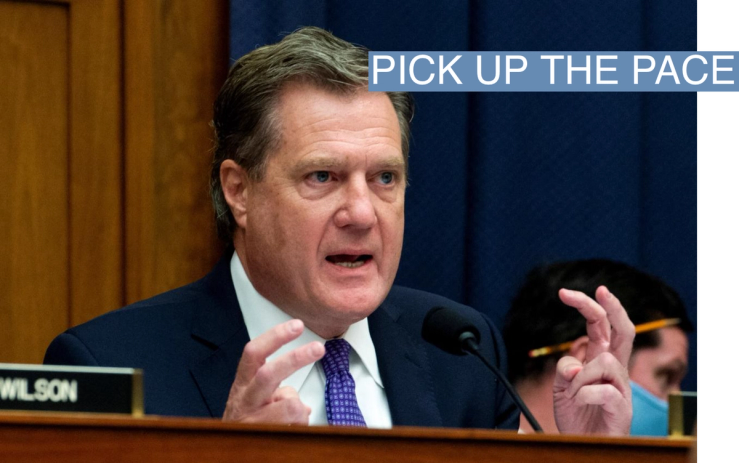The News
The new leaders of the House Intelligence Committee are circling a bipartisan target: speeding up the beleaguered vetting process for security clearances so that the government can steal top talent from the private sector more easily.
House Intelligence Committee Chairman Mike Turner, R-Ohio and ranking member Jim Himes, D-Conn. recently agreed to make security clearance reform for national security officials and government contractors one of their top priorities.
“This is a bureaucratic process that’s intended to protect our country but at the same time is making it more difficult to fill out the workforce, to hire people and compete with industry,” Turner said in an interview with Semafor.
The Intelligence chairman said he plans to set up a bipartisan working group to field suggestions from the private and public sector alike, and predicted the work would ultimately end in legislation.
“We’re in a world where a lot of the cutting edge work around artificial intelligence, biosynthesis, quantum computing, et cetera, happens in the private sector and I like the idea of the IC having access to that,” Himes said in an interview. “Obviously, a lengthy security clearance process creates a problem.”
Himes gave a hypothetical example of a recent immigrant who speaks multiple languages that are critical to intelligence gathering, but whose clearance is stuck in a bureaucratic jam. Their foreign background could slow their approval even as it’s central to why they’re being asked to contribute to national security in the first place.
“The presumption, of course, is the fact that they are a recent immigrant, or that they have lots of connections abroad, that that’s an adverse fact,” he said. “I think we need to scrutinize that.”
In this article:
Morgan’s view
While the government is in the middle of trying to untangle the complex systems around clearance right now, the process started years ago under the Trump administration. And they’ve already made some significant progress, as top White House and intelligence officials told senators at a hearing Wednesday on the topic.
On average, it takes the government 128 days (over four months) to issue a top secret security clearance and 78 days (about two and a half months) for a secret clearance, according to a top Office of Management and Budget official. That’s a steep drop from 2019, when it took over a year on average to receive top secret clearance and almost six months for secret clearance.
But lawmakers still see chances to whittle times down further without sacrificing necessary oversight.
“We’re losing great personnel because they just can’t wait,” Senate Intelligence Committee Chairman Mark Warner, D-Va. said at Wednesday’s hearing, adding it would take “a little bit of relentless obsession” for the government to get it right.
Turner, who said he has spoken with Senate Intelligence Committee leaders about the issue, suggested Congress look at finding ways for students in college to apply for clearances so they can work directly with or for the government as soon as they finish school.
“We need to move at the speed of our adversaries and right now we’re hampered,” he said.
One basic gap in the process lawmakers have highlighted: Social media. Stacey Dixon, the Principal Deputy Director of National Intelligence, told lawmakers Wednesday that officials who conduct background checks are currently in an “exploratory phase” to figure out how to use social media in vetting to make checks more speedy and thorough.
Lawmakers complain about long wait times, but they’re also looking for other ways to compete with private sector companies that offer more pay and a cutting edge work culture. Himes remarked at the House’s recent Worldwide Threats hearing that he was heartened to learn that CIA’s first-ever chief technology officer transformed the agency headquarters to resemble the open workspaces of California’s tech hub.
“There’s free snacks,” Himes said at the hearing earlier this month.“They’re just missing a millennial playing the guitar to reproduce what you see in Palo Alto everyday in the middle of CIA headquarters.
Room for Disagreement
Giving people faster clearance to look at classified material is one way to make the system more efficient. But another is to reduce the amount of unnecessary classified material floating around.
“The less information that’s classified, the less security clearances the government has to issue,” Sen. John Cornyn, R-Texas said at the hearing with White House and intelligence officials.
The issue of “overclassification” has gotten more attention from lawmakers lately, particularly in the wake of revelations about classified documents at the homes and offices of President Biden, former President Trump, and former Vice President Mike Pence.


